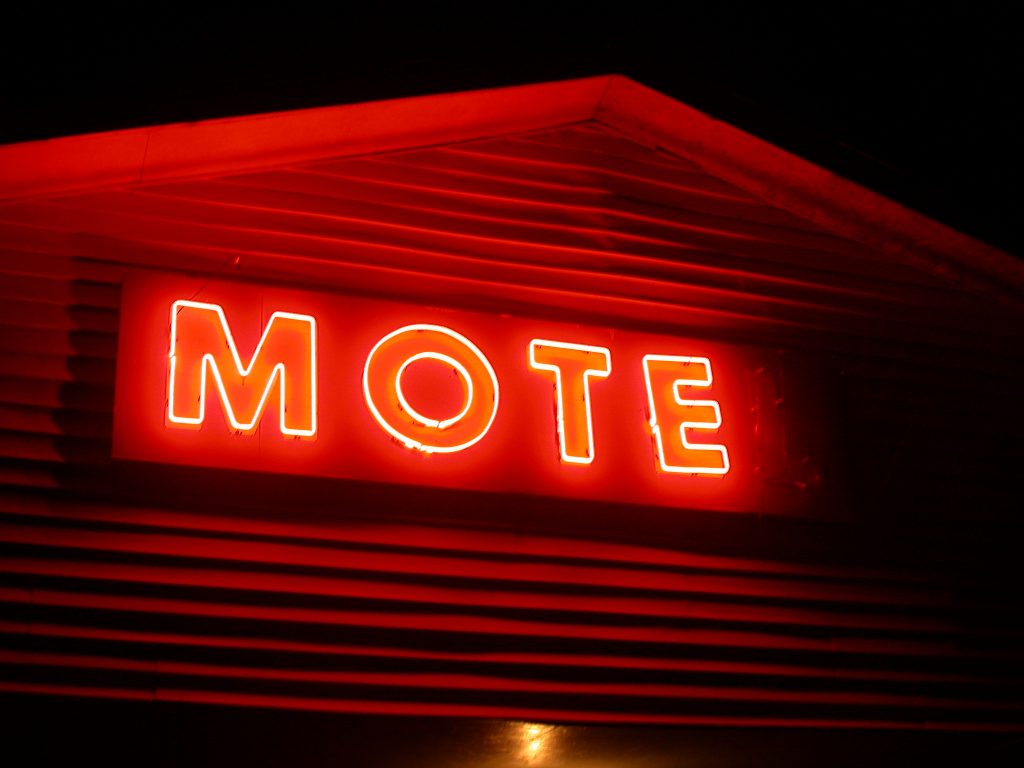 Wouldn’t it be a disappointment to have your legal claims dismissed because you missed a filing deadline? The rules that apply to time limits for filing cases can be complicated, as Top Dollar Pawn, Gun and Car Audio #5 in Shreveport, Louisiana found when Top Dollar’s lawsuit was dismissed by the trial court because it was filed after the one-year statute of limitations, the allowed period of time to bring a legal claim, had run.
Wouldn’t it be a disappointment to have your legal claims dismissed because you missed a filing deadline? The rules that apply to time limits for filing cases can be complicated, as Top Dollar Pawn, Gun and Car Audio #5 in Shreveport, Louisiana found when Top Dollar’s lawsuit was dismissed by the trial court because it was filed after the one-year statute of limitations, the allowed period of time to bring a legal claim, had run.
Top Dollar Pawn, Gun, and Car Audio loaned money to customers, using merchandise the customers gave the store as security for the loan. If a customer failed to repay the loan, Top Dollar sold the merchandise. Between August 2005 and December 2010, officers from the Caddo Parish Sheriff’s Office and the Shreveport Police Department repeatedly seized merchandise from Top Dollar that they believed had been stolen. They either kept the merchandise in their offices or returned it to the alleged original owners. No hearing was held to determine whether the customer using the merchandise as security for a loan was the lawful owner or had stolen the merchandise.
This procedure was a violation of Louisiana law, which provides a process for handling allegedly stolen goods that have been given to a pawnshop as security for a loan. Because the owners of the pawnshop have the right to due process of law, Louisiana law requires a hearing before depriving them of property. La. R.S. 37:1805.
 Louisiana Personal Injury Lawyer Blog
Louisiana Personal Injury Lawyer Blog


 As individuals approach the end of their life or encounter health problems, they may utilize a general power of attorney (POA) in order to care for their property. A POA is a written authorization to represent or act on another’s behalf in private affairs, business, or some other legal matter. The individual executing the POA is the principal and the individual acting under the POA is the principal’s agent. Dealing with a POA can be difficult since it is usually exercised during a stressful period in the principal’s life. Recently, the issue of using a POA was made even more complicated when it stirred up family drama in the Parish of Lincoln District Court after an agent used the POA to transfer all of the principal’s property into his own account days prior to the principal’s death.
As individuals approach the end of their life or encounter health problems, they may utilize a general power of attorney (POA) in order to care for their property. A POA is a written authorization to represent or act on another’s behalf in private affairs, business, or some other legal matter. The individual executing the POA is the principal and the individual acting under the POA is the principal’s agent. Dealing with a POA can be difficult since it is usually exercised during a stressful period in the principal’s life. Recently, the issue of using a POA was made even more complicated when it stirred up family drama in the Parish of Lincoln District Court after an agent used the POA to transfer all of the principal’s property into his own account days prior to the principal’s death.  When a patron is injured by a third party at a hotel, the patron might wish to seek damages from a national franchisor. There are however several criteria to establish a franchisor’s liability making it very difficult for a patron to recover in the absence of direct links between the injury and negligence. In a recent case out of New Orleans, a shooting victim was left with little recourse against the big company behind the local Motel 6.
When a patron is injured by a third party at a hotel, the patron might wish to seek damages from a national franchisor. There are however several criteria to establish a franchisor’s liability making it very difficult for a patron to recover in the absence of direct links between the injury and negligence. In a recent case out of New Orleans, a shooting victim was left with little recourse against the big company behind the local Motel 6.  When employees are fired they can often be entitled to benefits upon termination; including money payments to act as a substitute salary while the terminated employee searches for another job. While there is no federal requirement in the United States for an employer to offer severance pay, many do as it can be an attractive benefit to potential employees. Many employers choose to adopt a plan that falls under the Employee Retirement Income Security Act (“ERISA”). Employers can get tripped up however when they fail to support a denial of severance pay by substantial evidence.
When employees are fired they can often be entitled to benefits upon termination; including money payments to act as a substitute salary while the terminated employee searches for another job. While there is no federal requirement in the United States for an employer to offer severance pay, many do as it can be an attractive benefit to potential employees. Many employers choose to adopt a plan that falls under the Employee Retirement Income Security Act (“ERISA”). Employers can get tripped up however when they fail to support a denial of severance pay by substantial evidence.  In nearly every case of injury to person or property, there is a time period during which you can bring a lawsuit. When that time period ends is determined by statute. Defendants in cases where the time has past may bring an exception of prescription to have these cases dismissed. But how many times and when the exception of prescription may be raised is an issue that took center stage in an automobile accident case from Jefferson Parish.
In nearly every case of injury to person or property, there is a time period during which you can bring a lawsuit. When that time period ends is determined by statute. Defendants in cases where the time has past may bring an exception of prescription to have these cases dismissed. But how many times and when the exception of prescription may be raised is an issue that took center stage in an automobile accident case from Jefferson Parish.  Russell and Tracy Varmall owned a home in Kenner, Louisiana. Their home sustained damages during Hurricane Isaac in 2012. The home was insured by Bankers Specialty Insurance Company (“Bankers”) for wind damage and New Hampshire Insurance Company for flood damage.
Russell and Tracy Varmall owned a home in Kenner, Louisiana. Their home sustained damages during Hurricane Isaac in 2012. The home was insured by Bankers Specialty Insurance Company (“Bankers”) for wind damage and New Hampshire Insurance Company for flood damage.  Sexual harassment in the workplace is unfortunately all too common. While a victim of such harassment might feel entirely justified in filing a lawsuit against his or her employer, the harassing conduct might not be bad enough to survive a motion for summary judgment. Just how bad does a work environment have to be for a harassment victim to have a potentially successful claim? This was the issue in a recent case out of the United States Fifth Circuit Court of Appeal.
Sexual harassment in the workplace is unfortunately all too common. While a victim of such harassment might feel entirely justified in filing a lawsuit against his or her employer, the harassing conduct might not be bad enough to survive a motion for summary judgment. Just how bad does a work environment have to be for a harassment victim to have a potentially successful claim? This was the issue in a recent case out of the United States Fifth Circuit Court of Appeal.  Generally, plaintiffs bring an action against an adverse party to be made whole again in some way. Bringing a claim is a remedy seeking process. But, can a claimant’s inaction cause the proceeding to be dismissed? The Louisiana Fifth Circuit Court of Appeal recently answered this question in the affirmative in a case out of Jefferson Parish.
Generally, plaintiffs bring an action against an adverse party to be made whole again in some way. Bringing a claim is a remedy seeking process. But, can a claimant’s inaction cause the proceeding to be dismissed? The Louisiana Fifth Circuit Court of Appeal recently answered this question in the affirmative in a case out of Jefferson Parish.  In law, deadlines and rules of procedure are very important. Good cases can be lost because someone missed a deadline or did not understand and follow a procedural rule. That is why it is so important to ensure you have a good attorney who understands the rules of procedure and who keeps close track of deadlines, especially those for appeals.
In law, deadlines and rules of procedure are very important. Good cases can be lost because someone missed a deadline or did not understand and follow a procedural rule. That is why it is so important to ensure you have a good attorney who understands the rules of procedure and who keeps close track of deadlines, especially those for appeals. Sometimes procedural rules are overlooked as merely a peripheral aspect of a lawsuit. However, nothing could be further from the truth. Oftentimes you need to overcome numerous procedural hurdles just to reach the merits of a case. The following case illustrates the importance of procedure in the practice of law.
Sometimes procedural rules are overlooked as merely a peripheral aspect of a lawsuit. However, nothing could be further from the truth. Oftentimes you need to overcome numerous procedural hurdles just to reach the merits of a case. The following case illustrates the importance of procedure in the practice of law.